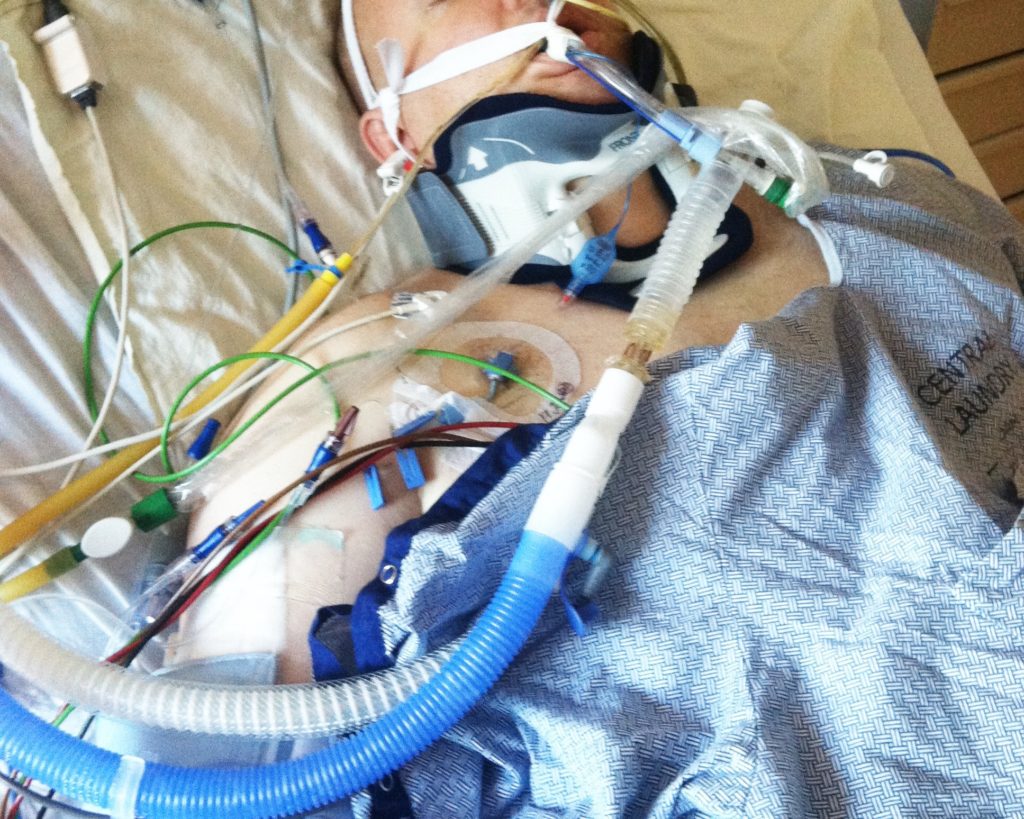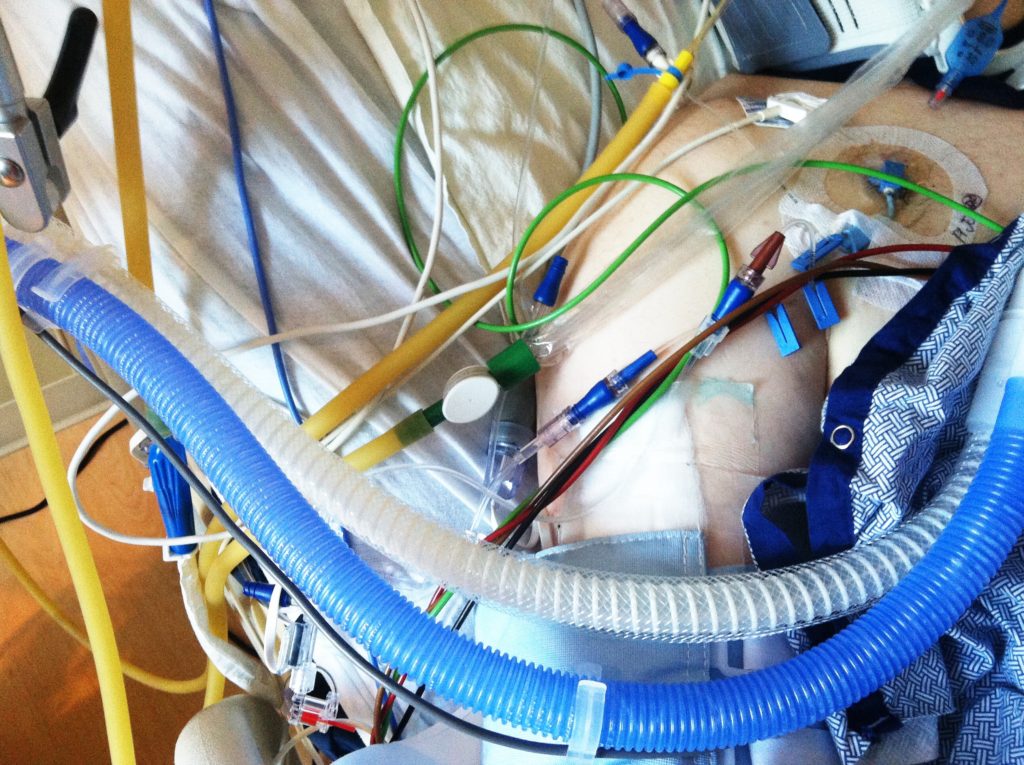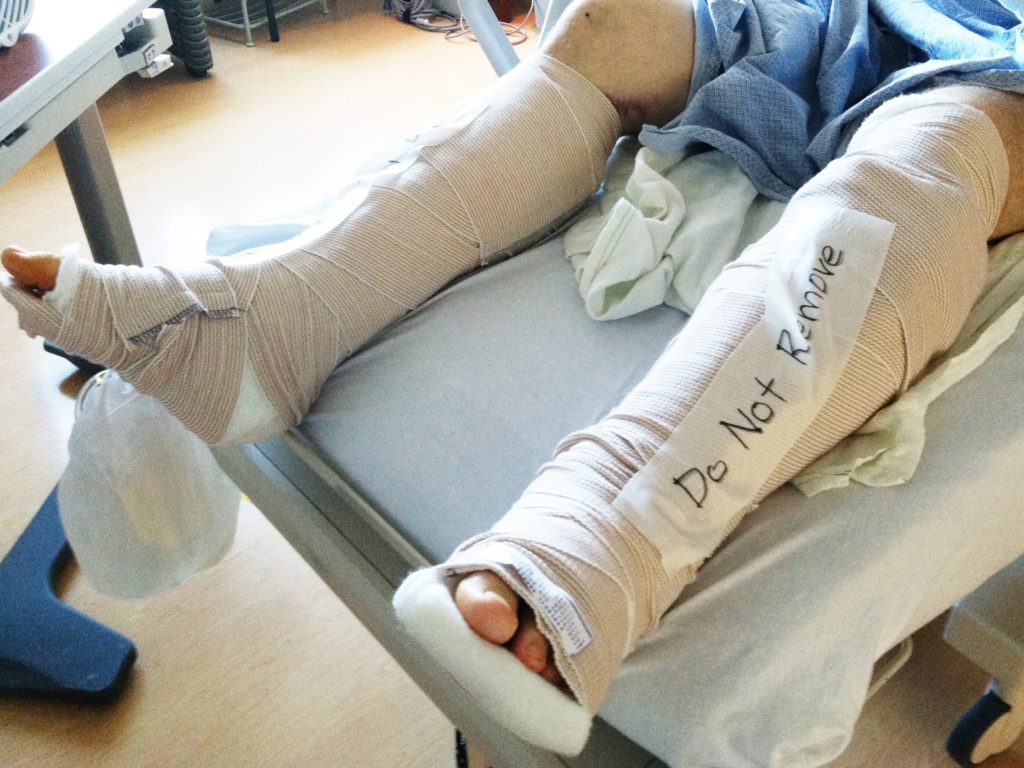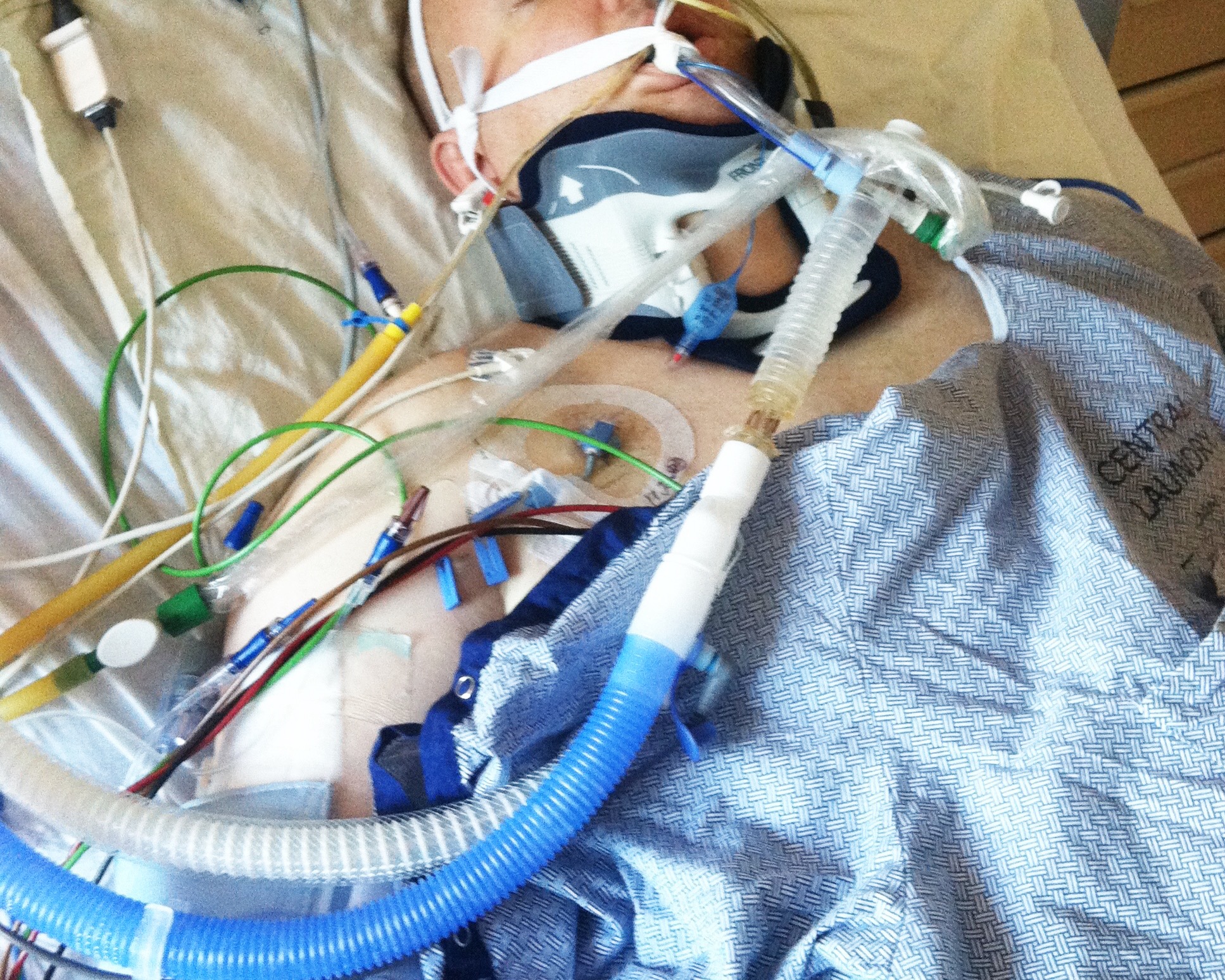Nearly six years ago, my brother stumbled on to a busy road while he was “black out” drunk. A car traveling around 40 mph hit him head on.
My phone rang late that night. It was my sister telling me about the accident. My brother had been life-flighted. She was on her way to the hospital.
My first response: “Well sh*t. Do I pray for him to live or to die?”
My second response: “Call me when you get there if I need to come.” This wasn’t our first “Burk is in the hospital” call or even his first time on life-flight.
From the outside it doesn’t make sense for me to not immediately jump in the car and head to be with him. But that’s the world of addiction. Near death too many times to count. Him forgetting it ever happened and continuing to do the same things that consistently and repeatedly landed him in the back of an ambulance, in an ER, or several times in the ICU.

There’s this word thrown around all.the.time when referencing the world of addiction.
Enable.
The definition: to give someone the authority or means to do something.
When it’s tossed around in the world of addiction someone will say “You’re enabling them” or “You can’t enable them” and on and on. The essence–if you help them, in any way, you’re helping them sustain their addiction. You’re allowing them the means to continue drinking or continue using drugs or continue whatever addiction it is they have.
I remember the first time I heard Dr. Phil lecture someone about being an enabler and I wanted to throat punch him. My question for Dr. Phil and anyone else who tosses that word around:
If your son (brother, daughter, sister, wife, dad, mom) showed up on your doorstep in a hospital gown, identifying name bracelets still on, traction blue socks from the hospital and no shoes, and not another possession to their name because someone stole their one remaining backpack of worldly goods while they were passed out, what would you do?
Would you turn them away? Would you close the door on them? Would you refuse to answer at all? Would you pretend to not be home? Would you cry? Would you yell? Would you be numb–to tired and weary to care in that moment? Would your heart ache or would you be filled with anger?
What would you do?
It’s a sincere question.
And the truth is, there’s no right answer.
When you’re in the thick of the addiction world, it often feels like there’s no right answer. You’re damned if you do. You’re damned if you don’t.
Over the years and years (and years) of dealing with my brothers addiction we ran the gamut of “solutions”. Volunteer rehab, forced rehab, pineapple picking in Hawaii, hard labor fishing crew in Alaska, rehab in the mountains, rehab in the city, jail, compassion, anger, tough-love, coercion, good-cop, bad-cop, guilt, limited contact, open contact.
We.tried.it.all.
And guess what–nothing worked. Nothing. He never “got better”. He never stopped (for any significant period of time).
He just got worse.
You know another phrase that makes me cringe–“they have to hit rock bottom before they get better.”
You know what I think my brothers rock bottom is? Death. Truly. I think he would die before hitting rock bottom and “recovering”. So when someone says “You can’t enable him”, are my choices help him or let him die? Or maybe somewhere in between? Help enough to keep him alive but only that? If I truly believe death is his rock bottom, then what?
We were in the middle of a “tough love” phase when my brother was hit by the car. Our family went through varying degrees of willingness and ability to “help” (in quotations because was it helping or hurting–no one can even answer that).
Some addicts disappear and go do their thing. That was not our case. You know the song “the cat came back, we thought he was a goner. But the cat came back; it just couldn’t stay away.” That was my brother. He stayed close. He always came back. He continued showing up on our doorstep, calling our phone up to 50 times a day, sleeping in our yards. He knew we’d never be able to completely cut him loose and forget about him.
He’s family. And family takes care of each other. But that’s the question. If we keep rescuing and aiding, is it actually helping?
My brother showed up at my parents house the day he was hit by the car. He was drunk. And there were boundaries we were trying to keep (how easily those boundaries often blurred and became muddy–unclear). No using at their house. You can’t come in if you’re drunk or using.
So we took him to a nearby area with a sleeping bag so he could sleep it off. Sounds awful, right? Dumping my brother in a field so he could sleep off his drunken stupor. We could have let him in. We could have made sure he was safe. But there were “rules”. We can’t enable. That’s what the experts say. That’s often what we believed. And sometimes I still believe. Addiction is a whole lot of gray and not a lot of black and white.
Late that night, he got up. He certainly had no idea where he was. He walked. And he ended up on the side of a busy road. And then he walked IN to the road. The car didn’t even have a chance to hit their brakes.
Somehow he lived (he’s got more lives than a cat). One shattered leg, the other broken. A broken shoulder, bruises everywhere, swollen abdomen (it was huge) and a bleed in his brain–traumatic brain injury. No one expected him to live. People don’t survive things like that. But he did.


The next few months were a living hell. For him. For my parents. For all of us.
What if we hadn’t dropped him in that gully? What if we had let him in even though he was clearly violating the rules? How would that have changed things?
We were trying not to enable. That backfired big time. Sometimes death isn’t always worst-case-scenario.
But had we let him in, who knows what would have happened the next day? We knew we couldn’t keep doing what we were doing and watching him destroy himself. His life was in shambles. And he was making my parents life a living hell.
The point–there are no right or wrong answers. Is it enabling or is it just trying to keep them alive while we feverishly cling to hope? Hope for healing. Hope for life.
For some, tough-love is the way. For some, compassion. For some, turning them away is the only solution. For some, letting them in is the only solution.
No right. No wrong. Just.plain.HARD. Either way. No easy decisions. And very rarely decisions that are confirmed as good ones or right ones. Always doubting. Always wondering. Always second-guessing nearly every single decision.
I have no answers, but I have all the compassion in the world.
And if I decide to let my brother in when he shows up on my doorstep in a hospital gown and someone calls me an enabler, so be it. He’s my brother. And though I didn’t let him sleep at the house (I’ve got kids and using drugs around my kids is not a decision I ever question), I fed him, I found him clothes, I rounded up a new backpack, I found shoes and then I drove him to the homeless shelter. Because there was no hand-book to handle that situation. There was no right. There was no wrong.
If you’ve never had to deal with addiction with a loved one, consider yourself incredibly lucky and withhold judgment. If you’re an addict, be kind to yourself. If you love an addict, do the best you know how and hang in there. Although it often seems bleak, there is always hope. Always.

I love this post! I love you and your beautiful parents! The questions still pop up in my mind what could’ve should’ve would’ve we done to save him?
Thank you for speaking mg the truth and for being so honest and open! It feels like an epidemic to me.. drug addiction. Maybe I’m just more aware since Dustin’s death… my heart will never judge another’s choices regarding their family members battles! It’s a freaking nightmare… the end!
Love you
Debi–I love you. I’ve always wondered why some people overdose and end up dying and some people don’t. There’s no logical explanations. Burk should have died SO many times. And I have no explanation for why Dustin did, but I DO know it wasn’t your fault.
Thanks for sharing this Lindsay.
Thanks for writing this. My brother is also a drug addict/alcoholic. It has been SO hard like you described. We have definitely struggled with the word “enable.” I truly don’t think people understand how hard it is when the “addict” is someone you love. My brother has 2 beautiful kids and I always have hope that things may one day turn around. Thanks again for the honest post.
Stacey (from your photo class?)
Stacey-
I know who you are. 🙂
I’m so sorry to hear about your brother. You know I know. So so hard. If you ever need someone to talk to, I’m always available.
Thanks for helping me see what I’ve put my family through. They went through hell. And yet I’m still alive because they never gave up. I sort of have my shit together now, meaning instead of heroin or pain pills I take Subutex every day to manage my opiate addiction. I’m able to function and live normally for the first time in years. I don’t go in and out of the E.R. because I can’t control myself, I don’t pass out and drown in my own vomit (thank God mom walked in and called 911. Anyway thanks for your honesty. This is mine.
Dave–
Glad to hear you at least “sort of” have your shit together. I know what Subutex is. For sure a step in the right direction. And bless your mom. That is not a scene I’d wish on my worst enemy. My mom and I found my brother in an “he’s almost dead” situation and the HARDEST part about it was watching the horror on my moms face. Truly horrific.
Be kind to yourself. And hang in there.
I have been meaning to read this for a while now. For some reason I started it and never finished it when you first posted it. I can relate to this on so many levels. Thank you for always being so real when it comes to dealing with an addict. I got chills when I read this because you did what you had to do because you love him. It is something you can only understand when you have gone through it. We are in the thick of it dealing with an addict in our family and my emotions run like crazy.